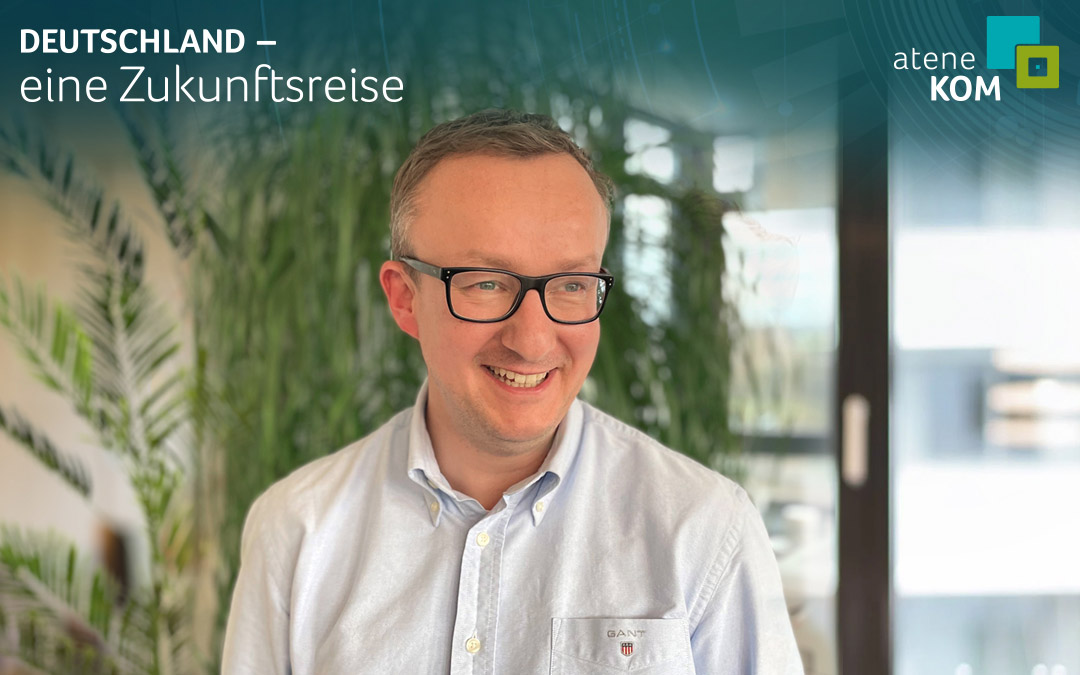Mr Gruber, what potential and challenges does the digitization process bring for the district of Hof?
Klaus Gruber: “ Digitalization offers numerous opportunities for the district of Hof as a rural area. Digital solutions and structures help the district to be prepared for future challenges. Digitalization helps us to overcome physical location factors and make life in the countryside more attractive. Possible locational disadvantages compared to metropolitan regions can thus be compensated for. Digital solutions make it possible to live and work in the Hofer Land region, regardless of which company the employee works for and where the company is based. New – digital – forms of mobility also enable a broad and individualized public transport service in rural areas and thus climate-friendly mobility without having to own a car. Digitalization helps companies in the district of Hof to open up new business areas and sales markets and to gain new knowledge. Digital services help us to ensure and improve good medical care in the district of Hof. In the care sector, too, digital solutions allow people to live independently in their own homes for as long as possible. Digital learning opportunities help to impart knowledge and enable educational opportunities for all population groups. Digital portals help to combat vacant properties in town centers and thus prevent urban sprawl. At the same time, they help to provide suitable housing for different demand groups. A particular challenge is to include all population groups in the digitalization process, including those who were not born as “digital natives”. In addition to appropriate communication, the added value of digitalization must be made tangible: Low-threshold offers help to recognize the advantages and reduce fears.
For which sectors is digitalization particularly important?
Gruber: Digitalization is of interest across all sectors in the district of Hof: In industrial companies in the district, IoT/Industry 4.0 solutions help to optimize production processes and improve the running times of machines – keyword: predictive maintenance. In the area of local supply, digital village stores help to maintain a local supply. Multi-channel approaches help our local (specialist) retailers to benefit from e-commerce while maintaining brick-and-mortar stores. Start-ups will also find ideal conditions for developing their digital business ideas at the Einstein1 digital start-up center in Hof.
Can you give three specific examples of how digitalization is changing everyday life in the district of Hof?
Gruber: The eNurse ensures medical care for residents in rural areas. Specially trained nurses support specialists and GPs by making home visits and treating wounds or taking blood samples at patients’ homes. The data is forwarded immediately and digitally to the relevant doctors’ surgeries. The Hofer LandBus is the new transport system in the district of Hof. It takes you from A to B. There are currently 185 stops in the Rehau and Regnitzlosau area. What’s new: there is no timetable. You request a journey and the app tells you when the vehicle will arrive at the desired stop. Plans are currently underway to extend the Hofer Landbus to the entire district of Hof. The shuttle model region of Upper Franconia is intended to provide insights into the operation of autonomous vehicles, their integration into public transport, as well as requirements for teleoperation, i.e. remote control of the vehicles by a control room. New knowledge about the interaction between people and autonomous vehicles will be created and acceptance of autonomous vehicles will be increased. However, it is also important to gain insights into how autonomous vehicles can be integrated into public transport.

